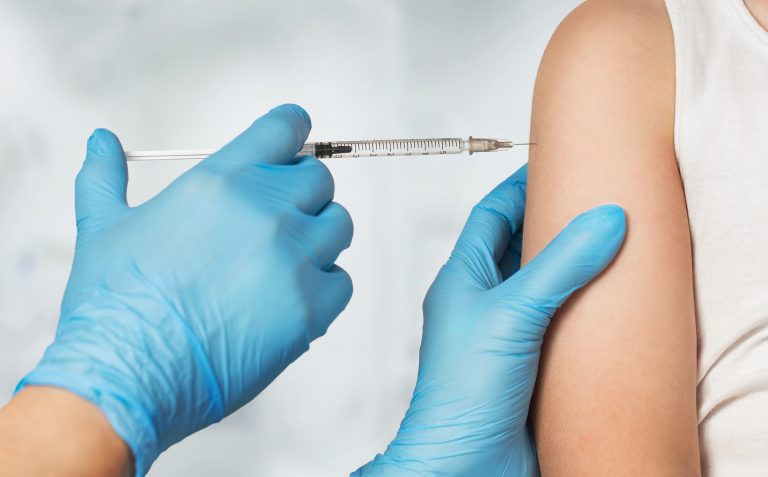
Johnson & Johnson (J&J) announced Wednesday that its Janssen Pharmaceutical Companies will speed up by two months—from September to the second half of July—the start of its planned Phase I/IIa clinical trial assessing its lead COVID-19 vaccine candidate.
“Based on the strength of the preclinical data we have seen so far and interactions with the regulatory authorities, we have been able to further accelerate the clinical development of our investigational SARS-CoV-2 vaccine,” Paul Stoffels, M.D., vice chairman of the executive committee and CSO at J&J, said in a statement. “Our goal is to ensure we can deliver a vaccine to the world and protect people everywhere from this pandemic.”
The randomized, double-blind, placebo-controlled Phase I/IIa study will be designed to assess the safety, response to vaccination, and immunogenicity of Ad26.COV2-S, recombinant, in 11,045 healthy adults aged 18–55 years, as well as adults aged 65 years and older. The study will take place in the United States and Belgium, Janssen said.
J&J also disclosed it is in talks with the NIH’s National Institutes of Allergy and Infectious Diseases (NIAID) to accelerate the schedule for the vaccine’s Phase III trial, depending on the outcome of the Phase I/IIa study and approval from regulators.
Ad26.COV2-S, recombinant, emerged from vaccine constructs created and tested by J&J with Beth Israel Deaconess Medical Center (BIDMC), part of Harvard Medical School, using Janssen’s AdVac® and PER.C6® vaccine technology platforms, designed for accelerated vaccine development.
AdVac is based on the development and production of adenovirus vectors (gene carriers), and can be used together with Janssen’s PER.C6 technology to develop recombinant vaccines against life-threatening infectious diseases.
“Front runner” candidate
Ad26.COV2-S, recombinant, is among 18 “front runner” candidates among the 230+ COVID-19 therapeutics detailed in GEN’s updated “COVID-19 Drug & Vaccine Candidate Tracker.”
J&J initially said in March it planned a September launch for its Phase I trial evaluating its COVID-19 vaccine.
Janssen’s acceleration of its clinical trial timetable comes nearly two months after Stoffels delivered upbeat news on Janssen’s COVID-19 vaccine program to analysts on J&J’s quarterly earnings conference call, held April 14.
“Our Adeno26 viral vector platform induces potent and long-lasting humoral and cellular immune responses in humans. Further, this approach has very low to no risk on the respiratory disease enhancement based on the immune responses observed across our programs,” Stoffels said, according to a transcript published by The Motley Fool.
Janssen’s PER.C6 cell line, designed to offer a high-yielding vaccine manufacturing platform, “is scalable and fully industrialized providing us the ability to make hundreds of millions of vaccines per year,” Stoffels added.
While the capacity of J&J’s Leiden-based vaccines launch facility is as high as 300 million doses per year, Stoffels said, the company intends to produce between 600 million and 900 million doses of the vaccine by the end of the first quarter of 2021.
In today’s statement, Stoffels said J&J has committed to the goal of supplying more than 1 billion doses globally through the course of 2021, “provided the vaccine is safe and effective.”
“Simultaneously, we are continuing our efforts to build important global partnerships and invest in our vaccine production technology and manufacturing capabilities,” Stoffels added.
$456M BARDA commitment
Among the most important partnerships focused on expediting development and production of its vaccine is the one Janssen has formed with the Biomedical Advanced Research and Development Authority (BARDA). According to its COVID-19 Medical Countermeasure Portfolio website, BARDA has committed more than $456.2 million toward supporting Ad26.COV2-S, recombinant, from development through licensure.
Janssen’s Ad26.COV2-S, recombinant, is one of three COVID-19 vaccine candidates that will be fast-tracked toward pivotal trials starting this summer, John R. Mascola, MD, director of NIAID’s Dale and Betty Bumpers Vaccine Research Center (VRC), told The Wall Street Journal in a report published Wednesday. The other two candidates are Moderna’s mRNA-1273, and AZD1222, being developed by AstraZeneca, the University of Oxford, and partners.
Both AZD1222 and mRA-1273 have joined J&J/Janssen’s vaccine candidate among “front runners” on GEN’s COVID-19 Tracker, which lists approximately 100 vaccine candidates.
“There’s gonna be more than one winner in the vaccine field, because we’re gonna need vaccines for the entire world—billions and billions of doses,” NIAID director Anthony S. Fauci, M.D., declared yesterday while addressing BIO Digital, the virtual 2020 BIO International Convention being held this week through Friday by the Biotechnology Innovation Organization. “I’m almost certain that we’re gonna have multiple candidates that make it to the goal line, get approved, and get widely used.”
Fauci told participants that he and NIAID staffers began work on the vaccine on January 11—just one day after Chinese researchers uploaded the SARS-coV-2 virus sequence onto a public database.
“I called a meeting of my staff on January 11, mostly at the Vaccine Research Center, and said, ‘We’ve really got to move on this to start developing a vaccine,’” Fauci recalled. “Now we have something that indeed turns out to be my worst nightmare, something that’s highly transmissible in a period—if you just think about it, in a period of four months, it has devastated the world.”













